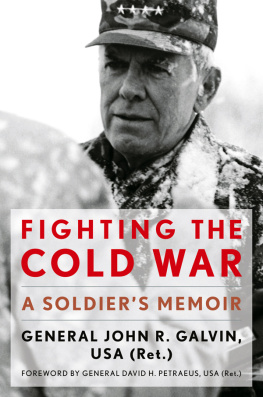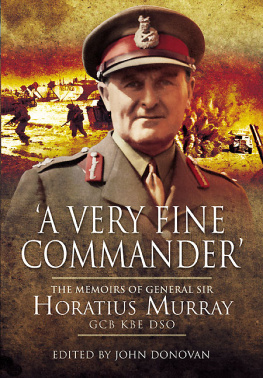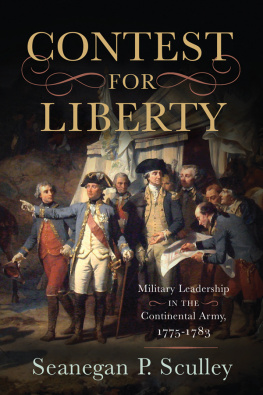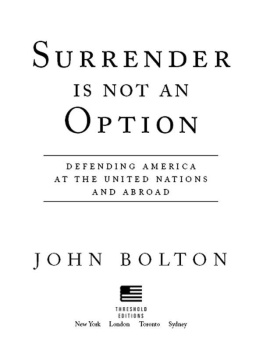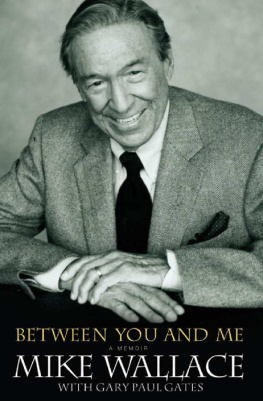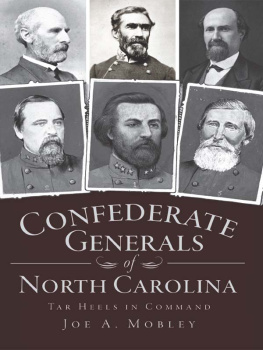
Fighting the Cold War
A MERICAN W ARRIORS
Throughout the nations history, numerous men and women of all ranks and branches of the U.S. military have served their country with honor and distinction. During times of war and peace, there are individuals whose exemplary achievements embody the highest standards of the U.S. armed forces. The aim of the American Warriors series is to examine the unique historical contributions of these individuals, whose legacies serve as enduring examples for soldiers and citizens alike. The series will promote a deeper and more comprehensive understanding of the U.S. armed forces.
S ERIES EDITOR: Roger Cirillo

An AUSA Book
FIGHTING THE
COLD WAR
A SOLDIERS MEMOIR
GENERAL JOHN R. GALVIN,
USA (RET.)
Foreword by
GENERAL DAVID H. PETRAEUS,
USA (RET.)

Due to variations in the technical specifications of different electronic reading devices, some elements of this ebook may not appear as they do in the print edition. Readers are encouraged to experiment with user settings for optimum results.
Copyright 2015 by The University Press of Kentucky
Scholarly publisher for the Commonwealth, serving Bellarmine University, Berea College, Centre College of Kentucky, Eastern Kentucky University, The Filson Historical Society, Georgetown College, Kentucky Historical Society, Kentucky State University, Morehead State University, Murray State University, Northern Kentucky University, Transylvania University, University of Kentucky, University of Louisville, and Western Kentucky University.
All rights reserved.
Editorial and Sales Offices: The University Press of Kentucky 663 South Limestone Street, Lexington, Kentucky 40508-4008 www.kentuckypress.com
Cataloging-in-Publication data is available from the Library of Congress.
ISBN 978-0-8131-6101-3 (hardcover : alk. paper)
ISBN 978-0-8131-6102-0 (epub)
ISBN 978-0-8131-6103-7 (pdf)
This book is printed on acid-free paper meeting the requirements of the American National Standard for Permanence in Paper for Printed Library Materials.

Manufactured in the United States of America.

| Member of the Association of American University Presses |
To Isomve and Kata
Contents
Foreword
General Jack Galvin has been many figures to many people. And beyond his exceptional accomplishments in and out of uniform, that is why he stood out from his contemporaries and was a model and an inspiration for so many of us. It is also what makes this book so special.
Fighting the Cold War revisits the many fields of General Galvins achievements.
He was, of course, a great soldier, highly decorated on the battlefield in Vietnam, who rose to the pinnacle of command as a Cold Warrior, and who was known for his thinking, his integrity, and his forthright adviceas will be clear in the pages that follow.
In his final military assignments, as commander of a corps in Germany, as commander-in-chief of U.S. Southern Command in Latin America, and then as NATOs supreme allied commander in Europe through the end of the Cold War, Jack Galvin proved to be an exceptional statesman as well.
Beyond all that, he was a scholar, the author of three books, a professor at the United States Military Academy, a frequent contributor to military and national security debates of the day, and, after taking off the uniform, the dean of Tufts Universitys Fletcher School of Law and Diplomacy. Not surprisingly, he was also a voracious reader with a wonderfully inquiring mind and a keen intellect.
This book would be worth reading for his reflections from those roles alone.
But Jack Galvin was more than just a great soldier, scholar, and statesman. He was also a keen observer of his times, with a delightful, quick sense of humor and a sharp eye for actions that inform one about others. He was a lover of writing and literature (and a student of languages, fluent in Spanish and German). His graduate degree was in English, the subject he taught at West Point, and he was constantly scribbling notes and ideas for future writing.
He was also an extraordinary conceptualizer, one of those who stood out in his generation for thinking out of the box, for developing the new big ideas. Moreover, he had the courage of his convictions when he fleshed out a change whose time had come, and he was willing to speak truth to power, as the saying goes. He was even a superb artist and cartoonist, finding humor in the pressures and peculiarities of West Pointand beyondwith a devilish, wry wit.
Finally, Jack Galvin was a proud son of an Irish bricklayer from a small town outside Boston and a devoted family man. He was particularly devoted to his girlshis wife, Ginny, and his four daughtersand, ultimately, to their husbands and partners, and then to their children. And he was an extraordinary friend and mentor to many, one who went out of his way (and out of the little time his schedule afforded) to stay connected with friends and those with whom he had served in the past.
Interestingly, all of these great qualities were packaged in a man who was invariably considerate of others and had a surprisingly small ego, despite the lofty accomplishments, decorations, honors, and acclaim. In part, this was because he never forgot his roots and he returned to them on a regular basis.
It is General Galvins additional qualities that give this book its extraordinary range: representing an impressive commentary not only on his times, but on timeless issues like leadership, strategic thinking, family, and relationships. It is the joy he takes in observing, commenting, and writingwith his wonderful sense of humor and a measured sense of himselfthat comes through in the pages of this engaging memoir.
I was privileged to serve directly for General Galvin in three assignmentsfirst, as his aide when he was a two-star general; then as a temporary duty special assistant when he was commander-in-chief of U.S. Southern Command; and finally, as a military assistant (speechwriter) in his first year as NATOs supreme allied commander. In each of these tours, and beyond, I benefited enormously from his mentorship and from his friendship, ultimately through a correspondence that has lasted for decades. Ours has been, in my mind at least, a truly special relationship, one that I believe both of us treasure. And in a day when one sent actual letters back and forth, our correspondence was extensive, one that remains very enjoyable to reread to this day. In some respects, this foreword is a continuation of our decades-long collaboration in thinking and writing about issues central to the U.S. military and to Americas situation in a rapidly changing world.
General Jack Galvin spent four decades in the U.S. Army, including fourteen years as a mid-grade, and then senior, officer in Europe at the height of the Cold War and another handful of years in several tours in Latin America, decades apart in a region facing innumerable crises. After retiring in 1992, he spent eight years at work in academia, reflecting and writing throughout that period and in the decade that followedand distilling his experiences into this compelling memoir.
Next page
